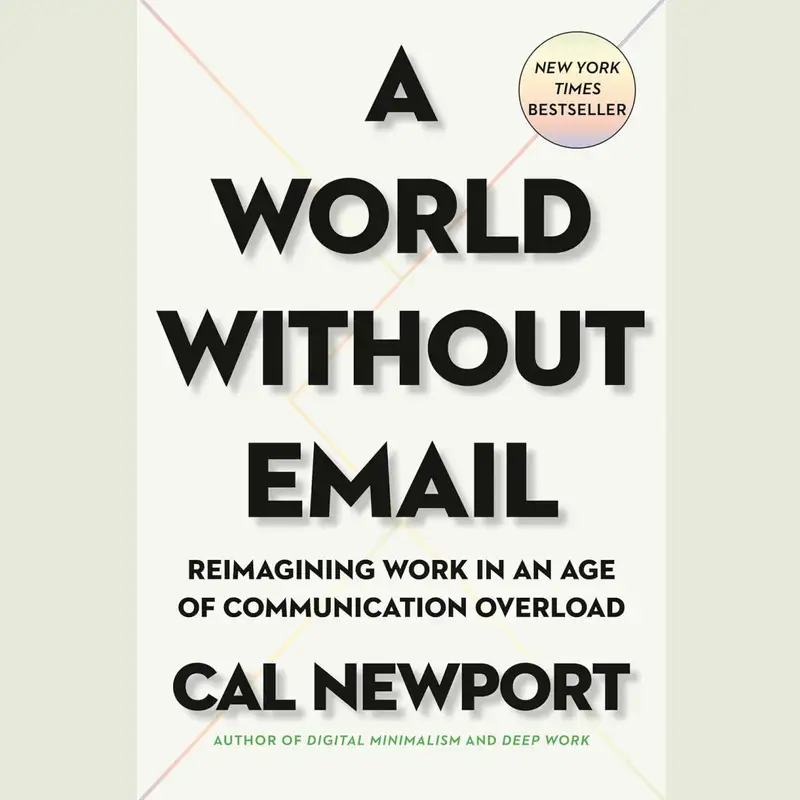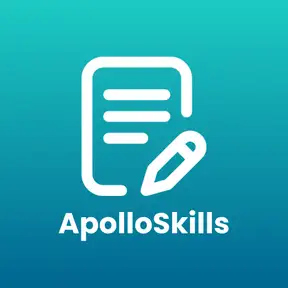A World Without Email by Cal Newport
Summary: A World Without Email by
Cal Newport
In “A World Without Email,” Cal Newport presents a transformative view of
workplace productivity by challenging the central role of email in modern
professional life. While email is one of the most commonly used tools for
work-related communication, Newport contends that its very nature leads
to inefficiency, burnout, and diminished productivity. His vision for a future
without email isn’t about eliminating communication but rethinking how
we approach it. Let’s delve into Newport’s central arguments and his
practical strategies to create a work culture free from email overload.
The Hidden Costs of Email Overload
In today’s digital world, we often consider email indispensable, yet
Newport reveals the hidden costs associated with relying on it as our
primary communication method. The relentless influx of emails fosters a
chaotic work environment that constantly disrupts our attention.
Employees who face this unending flow of messages struggle to find
uninterrupted time to focus on tasks that matter. In Newport’s words,
“Email is the productivity killer, not productivity itself.”
He emphasizes that checking emails every few minutes fragments our
attention and diminishes our ability to perform complex, thoughtful work.
Studies cited by Newport show that it takes around 23 minutes to regain
focus after an interruption, meaning every email can cost substantial time
and cognitive energy.
Summary: Slow Productivity by Cal Newport
Discover how entrepreneurs can adopt Cal Newport’s Slow Productivity to enhance work
quality, focus on deep work, reject hustle culture, and achieve success without burnout.
Breaking Free from the “Hyperactive Hive Mind”
One of the book’s most powerful insights is the concept of the
“hyperactive hive mind”—a state where employees are trapped in
constant communication. This reactive way of working prioritizes short-
term responsiveness over long-term productivity, and Newport argues
that the consequences of this mindset are far-reaching. He explains that
not only does it reduce the quality of work, but it also fosters an
atmosphere of anxiety and perpetual urgency. As employees struggle to
keep up with the torrent of communication, they’re less likely to engage in
deep work or innovate effectively.
Structured Workflows: Alternatives to Constant
Messaging
Newport believes that breaking the cycle of constant email checking is
achievable by implementing structured workflows and reducing
dependency on email. He offers various alternatives that are more
efficient and less disruptive to focus. By using project management
software (such as Trello or Asana) or even single-threaded messaging
tools (such as Slack channels with specific protocols), teams can
streamline information flow and reduce unnecessary back-and-forth. Task
handoffs, updates, and progress tracking are more transparent, requiring
fewer status-checking emails.
This approach fosters a “pull” method, where employees can access the
information they need, when needed, without continuous disruptions. For
example, teams can reduce email dependence without sacrificing clarity
or project progression by setting designated check-in times or limiting
discussions to single threads.
Sign up for Apollo Advisors: Workshops,
Mentorship and Masterclasses for Entrepreneurs
Align Your Leadership, Execute Your Vision, Scale Your Business
No spam. Unsubscribe anytime.
Building an Intentional, Low-Interruption Work Culture
Newport’s advice isn’t limited to individual habits; he stresses the need for
an organizational shift in communication culture. Companies should
cultivate an intentional work environment that values high-impact tasks
and clear communication channels over instant responsiveness. He
suggests concrete steps, such as dedicated time blocks for email
responses, establishing specific tools for collaborative projects, and
prioritizing deep work in the workplace.
Newport envisions a workplace where employees can thrive without
feeling shackled to their inboxes. By fostering a more structured
communication model, companies can cultivate an atmosphere that
promotes productivity and employee well-being.
Rethink Email!
In A World Without Email, Cal Newport challenges us to rethink our
relationship with email and introduces a vision of a workplace where
productivity thrives without constant interruptions. By implementing
structured workflows and fostering a culture of deep work, we can reclaim
our focus, reduce stress, and accomplish more meaningful work.
Newport’s insights remind us that a balanced, thoughtful approach to
communication isn’t just beneficial for individuals—it’s a powerful catalyst
for organizational success.
Summary: Digital Minimalism by Cal Newport
Explore the transformative principles of Cal Newport’s “Digital Minimalism,” focusing on digital
declutter, intentional technology use, and high-quality leisure to lead a focused life in a noisy
world.
Practical Tool: A Guide to Reducing Email
Dependency at Work
1. Set Dedicated Email Check Times
Instead of continuously checking email, establish specific times during the
day (e.g., morning, after lunch) for email management. This creates
uninterrupted blocks for deep work.
2. Utilize Project Management Tools
Migrate team project updates and task lists to tools like Asana, Trello, or
Monday.com. This will reduce the need for status updates over email and
centralize tasks and communication.
3. Adopt Single-Thread Communication for Projects
Create single threads for specific projects on a messaging app to reduce
redundant emails. Organize discussions by topic to streamline the flow of
information.
4. Encourage a Culture of Deep Work
Introduce deep work sessions in team schedules, allowing employees to
work without interruptions. These can be set in blocks, during which
emails and meetings are discouraged.
5. Set Communication Norms
Communicate policies on email responsiveness, such as only replying to
non-urgent emails within a business day and helping employees focus on
high-priority work.
Summary: Deep Work: Rules for Focused Success in a Distracted World by Cal Newport
Discover the secrets of deep work for peak success in a distracted world. Learn how to boost
productivity, focus, and achieve your goals effectively.
Cal Newport: Biography
Cal Newport is a computer science professor at Georgetown University,
known for his research in theoretical computer science and his work as a
writer. An advocate for deep, meaningful work and a productivity expert,
Newport has authored several bestselling books, including “Deep Work,”
“So Good They Can’t Ignore You,” and “Digital Minimalism.” His work
focuses on helping people achieve greater productivity and satisfaction by
reducing distractions and fostering intentional focus in their personal and
professional lives. Newport frequently contributes to The New Yorker, The
New York Times, and other significant publications, where he writes about
productivity and digital culture.

